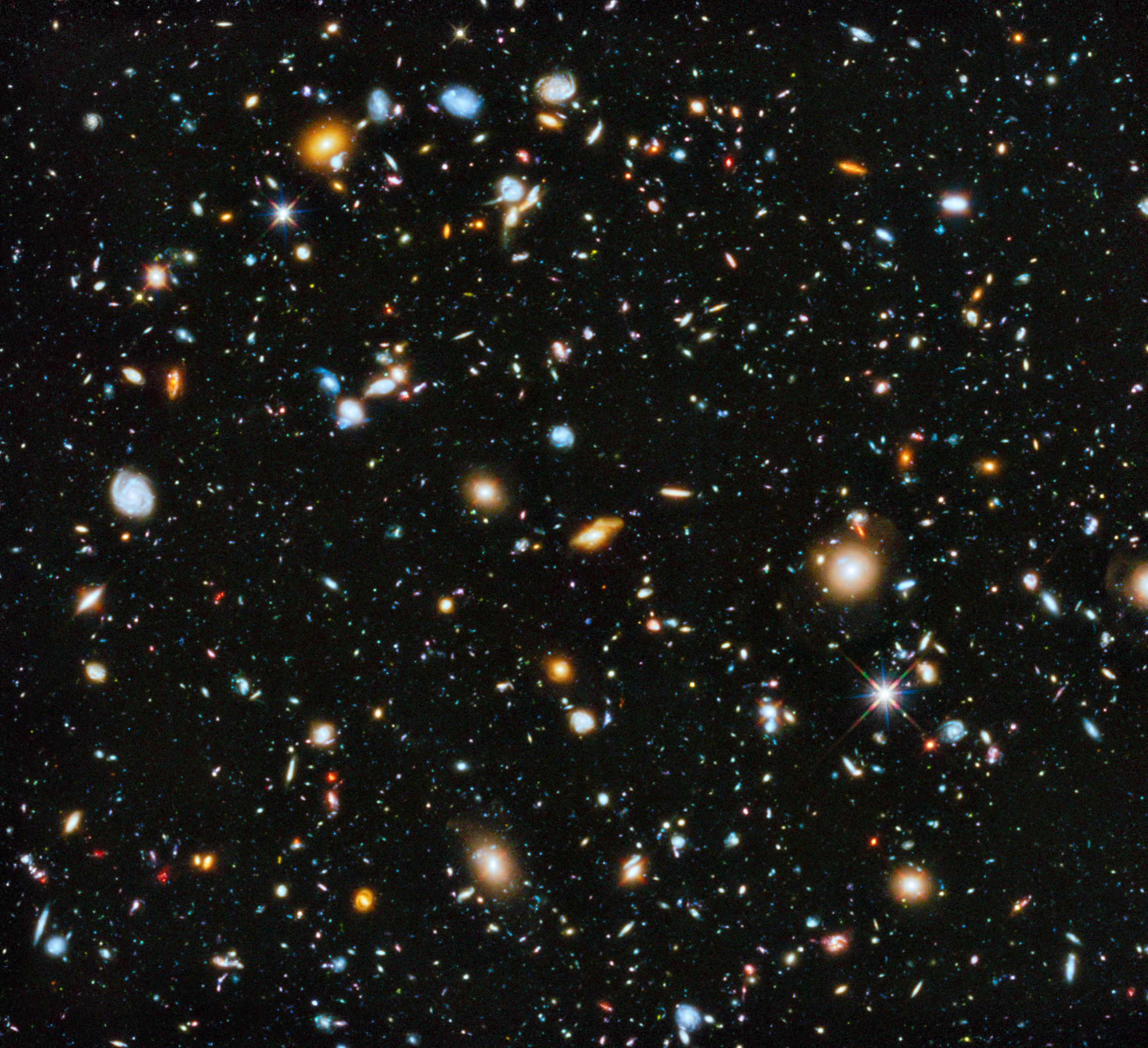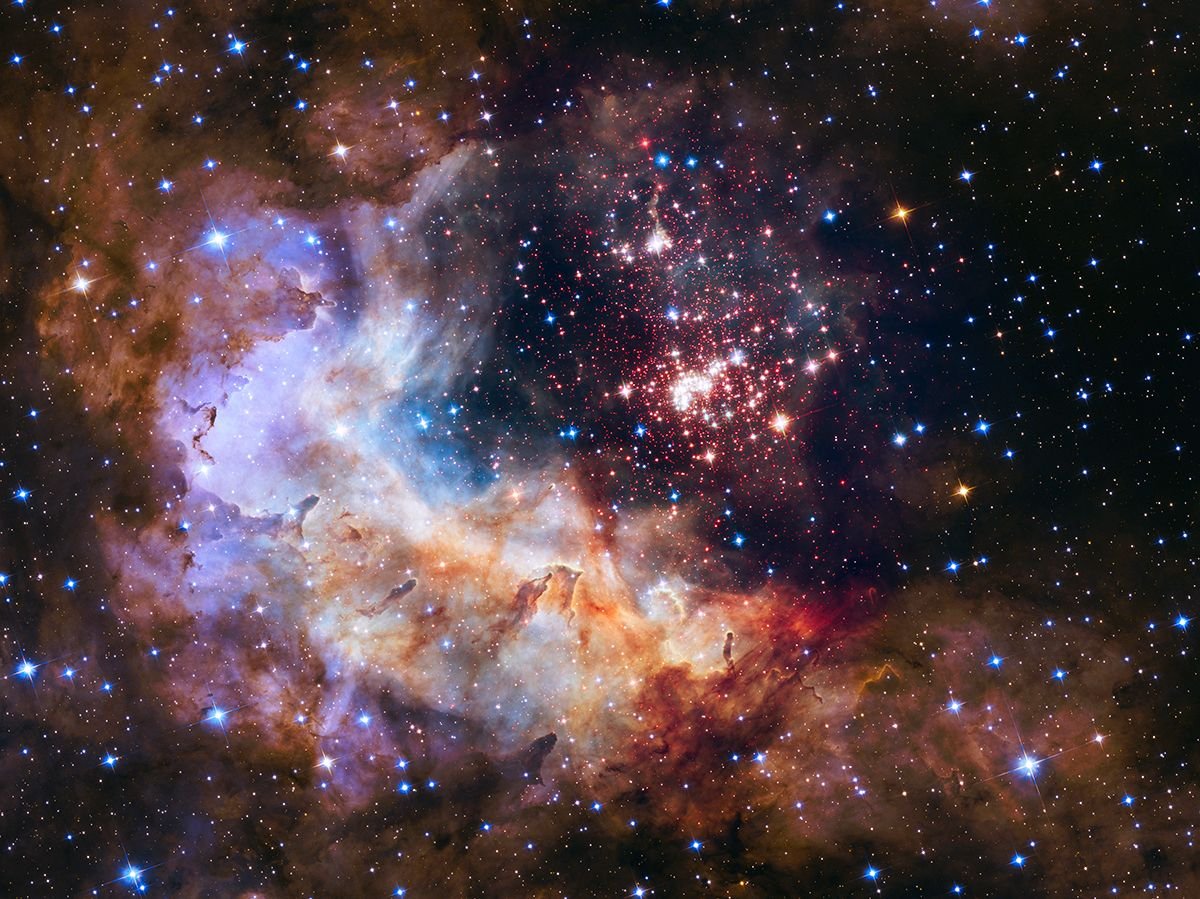
Astronomers using the Hubble Space Telescope to make the most precise measurements ever of the universe's expansion have confirmed it seems to be swelling faster than expected.
Their new yardstick doesn't match up with predictions based on measurements of the early universe, and the team thinks a new physics will be needed to understand why.
The work builds on the 1998 Nobel Prize–winning discovery of the accelerating universe. The new results have been accepted for publication in the Astrophysical Journal.
"The community is really grappling with understanding the meaning of this discrepancy," said Adam Riess, Nobel Laureate and lead researcher for the project, in a statement.
Ancient Greek math and modern space scanning
For the past six years, Riess and his team have been working on refined measurements of the distances to other galaxies, using stars as milestones. They used this data to produce a new "Hubble constant," a value that calculates how fast the universe expands with time.
The team used ancient Greek geometry and a sophisticated scanning technique to produce their measurements, which stretch up to 10 times deeper into space than previous data.
The European Space Agency's Planck satellite studied the universe's early expansion on a mission from 2009 to 2013. It mapped the cosmic microwave background—lingering electromagnetic radiation from the Big Bang. Background radiation gives scientists a picture of the universe's expansion from 378,000 years after it exploded from a tiny singularity.
This early data predicts a trajectory for expansion that is 9 percent different to the new Hubble results.

Planck results put the current Hubble constant between 41.6 and 42.9 miles per second per megaparsec (3.3 million light years). But Riess and team's results give a higher value of 45.4 miles per second per megaparsec.
There is only a 1 in 5,000 chance this discrepancy is a coincidence, according to the new data.
"Both results have been tested multiple ways, so barring a series of unrelated mistakes," Riess explained, "it is increasingly likely that this is not a bug but a feature of the universe."
Dark energy, dark radiation or dark matter?
Riess proposed a number of possible "dark" explanations for this astronomical mismatch.
Dark energy, he suggested, might be dragging galaxies apart with greater—or growing—strength. Acceleration wouldn't have a constant value in this case.
Another explanation comes from tiny sterile neutrinos. This new kind of subatomic particle would travel close to the speed of light and be affected only by gravity. Sterile neutrinos would form "dark radiation," which does not interact with any of the fundamental forces in the Standard Model of particle physics.
A third possibility suggests that elusive dark matter—which is invisible and not comprised of the protons, neutrons and electrons that make up atoms—has a stronger relationship with normal matter or radiation than previously believed.
These scenarios would change scientists' understanding of the early universe, and undermine a Hubble constant based on such measurements.
This could explain the discrepancy between the Planck results and these new results.
The team is still striving for even more precise cosmic measurements. They will use data from Hubble and the ESA Gaia space observatory to refine their results. Team member Stefano Casertano added: "This precision is what it will take to diagnose the cause of this discrepancy."
Uncommon Knowledge
Newsweek is committed to challenging conventional wisdom and finding connections in the search for common ground.
Newsweek is committed to challenging conventional wisdom and finding connections in the search for common ground.
About the writer
Katherine Hignett is a reporter based in London. She currently covers current affairs, health and science. Prior to joining Newsweek ... Read more
To read how Newsweek uses AI as a newsroom tool, Click here.








